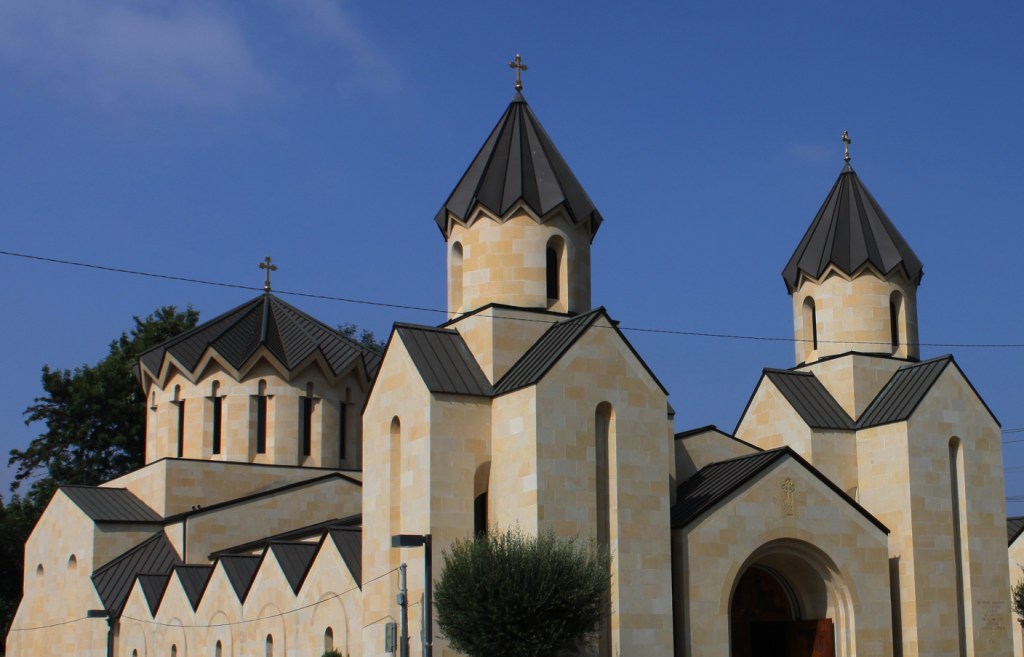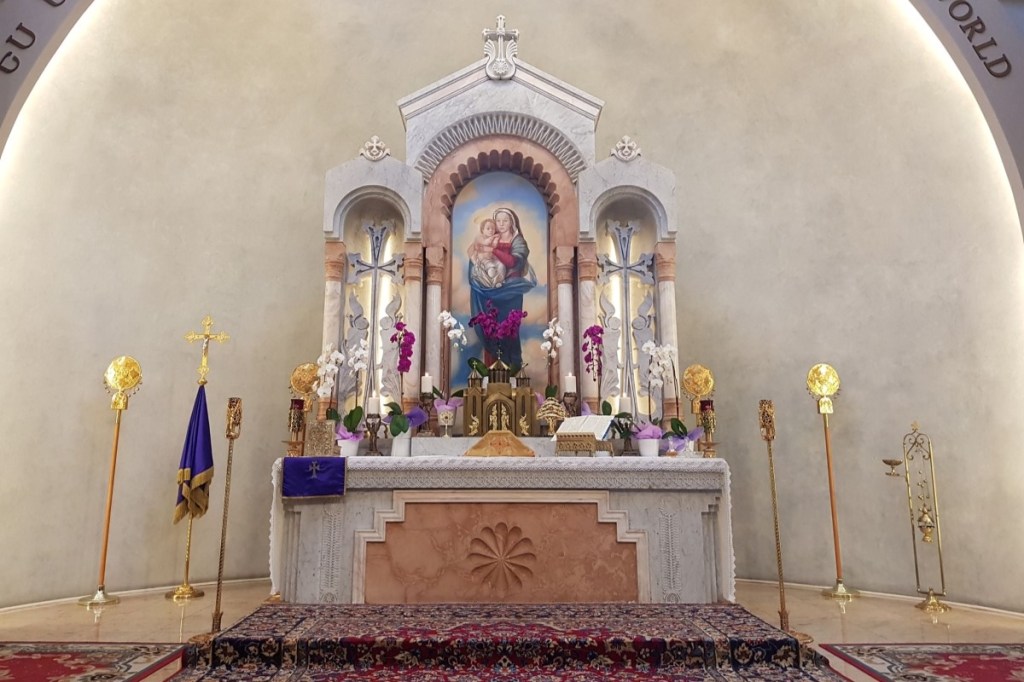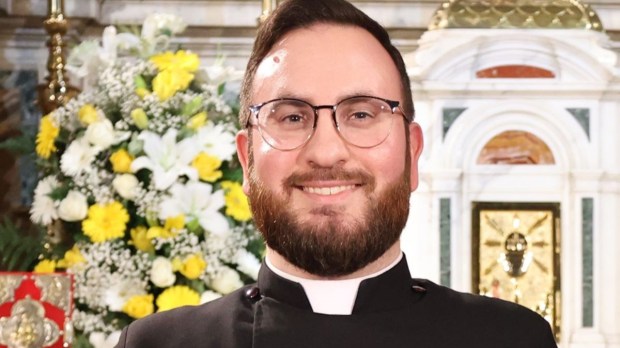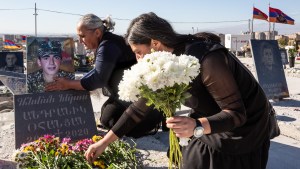“Despite our history enduring the longest night, I want the world to not see us as simply victims… I want them to see and be inspired by our resilience.”
These words of hope and strength about the Armenian Catholic Church come from someone who is himself a sign of hope — Viken Abassian, seminarian and subdeacon of the Our Lady of Nareg Armenian Catholic Eparchy of the US and Canada. He is the first American-born Armenian who has continued in his formation thus far as a seminarian for the Armenian Catholic Church in the United States.
Viken’s story of faith is inextricably tied not only to the persecution of the Armenian people, but also to the long history of Israeli-Palestinian conflict. Viken was born in the United States for the same reason as many Armenian Americans — because his family was fleeing persecution.

A long and difficult journey
His ancestors came from Adana and Mersin in historical Armenia (modern-day Eastern Turkey). In order to survive genocide, his family sought refuge in both Lebanon and the Holy Land. He recounts that from Jerusalem, “They escaped the Holy Land with the growing radicalism and aggression between Israel and Palestine and came to the US to build a new life.”
The suffering of his Armenian people is not covered heavily by secular media, yet is a striking story of repeated injustice. In his own words, Viken shares:
The history of our nation is saturated with suffering, which has been provoked by ethnic and religious persecution from many empires who wished to either subjugate us or eradicate us altogether.
This persecution has taken the form of two genocides, over one hundred years apart, but both targeted at destroying Armenian Christians.
[First came] the 1915 Genocide (the first of the 20th century) perpetrated by the Ottoman Empire, which stripped 1.5 million souls from our people. The most recent is the ethnic cleansing by the Islamic regime of Azerbaijan. This country, which is a Soviet-Union fabricated state, initiated the cleansing of the ethnic majority of Armenians from the city of Artsakh (Nagorno-Karabagh) over the past three years, affecting the lives of 120,000 people.
The “crime” of existing
This aggression, he explains, is motivated by a desire to create a two-nation state. Christians’ only “crime” is existing in these ancient lands for thousands of years.
Yet, in the midst of terrible suffering, there are signs of God’s accompaniment of Armenian Catholics. Viken’s eparchy has been a recent development — it became an eparchy is 2005, after being established as a mission in 1896 and an Apostolic Exarchate in 1981.
Vocations, as in the Latin Rite, have suffered somewhat in the modern era. “These were tumultuous years for the Armenian people, enduring the recent genocide, and then the subsequent rebuilding of our diaspora nation. Besides our ‘infancy,’ we too have been combating militant atheism and modernism — be it in our motherland as a post-soviet country, or the diaspora facing the growing anti-religious sentiment in their cultures.”

Journey to the seminary
But here Viken is, in his 8th year of studying in Rome, preparing to serve the Armenian Catholic Church in America as a priest. He came from a devout Catholic family and says that he has always been drawn to the priesthood. Where he grew up in Fresno, California, there wasn’t a local Armenian Catholic Church, so he assumed he would discern becoming a Roman Catholic priest. Yet, when he was ready to apply for seminary, he was told that as an Armenian Catholic, he’d need to seek a dispensation from the Armenian Catholic Bishop.
Instead, the bishop encouraged Viken to consider becoming a priest in the Armenian Catholic Church. “He encouraged me to put my trust in God and take the leap of faith. Thanks be to God; I took that chance.”
God-willing, Viken will serve the faithful, suffering Armenian people. The story of his people, and of the Armenian people, is a tragic one. At the same time, their hope and faith is incredibly strong. Viken touches on the reason for their faith:
Even though we have been confronted by countless legions sent by Satan to extinguish the light of Christ, we have always known that to truly be defeated is to abandon the Holy Cross. In humility, we wear Christ’s admonishment on our shoulders, “Fear not those who kill the body; rather fear him who can destroy the soul and body in hell.”



